- Home
- Rick Mofina
The Panic Zone Page 3
The Panic Zone Read online
Page 3
“So what does Frank want me to do?”
“He wants me to take you to the Café Amaldo, now.”
“The crime scene?”
“Yes, his instructions are for me to help you to talk to the lead investigators, to push them for more information. Then go directly to the bureau, to help update the story.”
“Let’s go.”
5
An eerie quiet enveloped the air around the café.
Rio’s Centro traffic had been diverted around the blast area or, what one newspaper called “A Zona da Matança.”
“It means the Zone of the Slaughter,” Luiz translated for Gannon as they left their taxi and walked to the inner perimeter.
Knots of police vehicles, their emergency lights flashing, secured the street. Farther along, where the satellite trucks and news crews had parked, it was cordoned by barricades and tape, and several dozen people were rubbernecking the investigation.
Beyond the police lines, Gannon saw the office buildings and shops smashed by the blast. The awning of a boutique drooped above its shattered windows. Mangled chairs, tables and debris littered the street. The sign above the café had split, both pieces swaying now in the breeze, signifying the wound in the aftermath of the attack.
Stick to the basics, keep your notebook out of sight and observe. Gannon knew how to work a scene.
As they drew near, he indicated to Luiz that they should go to the far end of the barricade away from the other news people.
From there, they saw the technicians in their white coveralls, yellow shoe covers and latex gloves picking through wreckage on the patio and sidewalk, collecting evidence. Others photographed the devastation, took measurements and made notes. A police dog, its snout to the ground, sniffed for trace material, while a soft wind carried flakes of ash and papers down the avenue and alleys.
“Não aqui! Você deve mover-se!” An unsmiling uniformed officer appeared before them.
“He wants us to move, to join the other reporters,” Luiz said.
“Tell him I’m a reporter with the World Press Alliance from New York and that two of my colleagues were killed here. Gabriela Rosa and Marcelo Verde. Tell him I need to speak to the lead investigator, possibly, to share information. Stress possibly.”
As Luiz translated, Gannon held up his WPA identification. After listening and looking at it, the cop spoke into his radio.
A moment passed and a response crackled back.
Gannon saw another uniformed officer amid the scene talk into his radio, then to the two men in polo shirts and jeans beside him. One of them looked from his notebook to Gannon, then waved him through. Gannon had figured the plain-clothed men for detectives. The first one held out his latex-gloved hand before him and spoke in English.
“Give me your passport, please.”
The man reviewed it and wrote down Gannon’s passport number while his partner took Gannon’s picture with a small camera.
“Am I to understand that you have information on this crime, Mr. Jack Gannon?”
Gannon glimpsed the cop’s ID on the chain around his neck and the words Polícia and Roberto something Investigador. His face was somber as if the weight of the world were pressing on him. A tiny scar meandered down his left cheek as his hooded brown eyes measured Gannon.
“I would like to discuss things first,” Gannon said.
“No discussion, if you have information relating to this crime, you must tell me.” The detective angled Gannon’s passport so his heavyset, pock-faced partner could read Gannon’s passport number. Then he spoke in rapid Portuguese and his partner nodded and made a phone call. “If you interfere with our investigation we can revoke your visa and send you back to New York.”
“What?”
“Or we can arrest you.”
“Hold on a second.”
“Do you have information relating to this crime?”
Gannon heard the partner say “Jack Gannon” into his phone and grew uneasy. This was not like a crime scene in Buffalo. What had he stepped into? Sweat rolled down his back. His mind blurred with the reports he’d read on the plane of how elements of the Brazilian police were feared for alleged corruption, brutality and, according to human-rights groups, executing criminal suspects.
A New York detective might have offered a few words of condolence for the loss of Gannon’s colleagues. Not this Roberto guy, who was tapping Gannon’s passport in his palm.
“Your response?”
Gannon studied the man’s ID. “You’re Roberto Estralla?”
“Yes.”
“The lead detective?”
Estralla nodded.
“May I have my passport back?”
“You have failed to answer my question.”
After quick consideration, Gannon said, “Would you exchange information confidentially?”
Estralla stopped tapping Gannon’s passport. “Are you attempting to bribe me? Because that is a crime.”
“No.”
“Tell me what information you have, before I exercise my authority.”
“I believe Gabriela and Marcelo were supposed to meet a source here.”
“And what is the name of this source?”
“I don’t know.”
“What sort of business did they have with this source?”
“I don’t know.”
Estralla spoke to his partner in Portuguese then continued, “Where did you learn of this information about the meeting?”
“We heard it at WPA headquarters in New York before I was dispatched to Rio de Janeiro.”
Estralla studied Gannon’s face for an icy moment.
“In which hotel are you staying?”
“Nine Palms.”
Estralla nodded to Gannon’s cell phone.
“Your telephone number?”
Gannon recited it and the moment Estralla finished noting it, Estralla’s cell phone rang. He returned Gannon’s passport. “You may go,” he said, hailing a uniformed officer before taking his call.
“Wait,” Gannon said, “I have some questions.” Estralla waved Gannon away to take his call but Gannon persisted. “Do you have any suspects or leads? What about a motive, or the type of bomb?”
Estralla and his partner walked away. A uniformed officer took Gannon’s arm and escorted him to the police line where he was suddenly awash in bright lights from the news cameras.
“Jack Gannon,” an attractive woman wearing flawless makeup, a tailored suit and a sense of urgency beckoned him. She gripped a microphone. A man with a TV camera on his shoulder stood behind her. “You are with the WPA?” the woman asked.
The police officer nodded and nearly two dozen journalists and photographers crowded around Gannon.
“I am Yasmin Carval from Globo.” The rings on her fingers glinted as she extended her mike to Gannon. “Did the police tell you who is responsible?”
“No, I’m sure you know more than me.”
“Two of your WPA press friends were killed. Can you say something to us about that?”
The lights from the five or six TV cameras around him were intense. Gannon glimpsed Luiz at the fringe of the pack and caught a hint of Yasmin Carval’s strong perfume as she stepped closer.
“Mr. Gannon, what has been the impact?” Yasmin Carval asked.
“The loss has taken a toll on our entire agency.”
“Do you think Gabriela and Marcelo were targets?”
“Targets?”
“Was Gabriela working on a story about drug gangs?”
“I don’t know.”
“There is speculation that narco gangs are behind the bombing.”
“I don’t know anything. I can’t say more, I have to go.”
Gannon shouldered his way through the pack and when he reached Luiz, they started walking toward the bureau. It was a few blocks away.
“What the hell was that?” Gannon said. “How did they know my name and everything else?”
“When they spotted you i
nside the line, they thought you were getting preferential treatment and complained to the other officers, who told them you were with WPA.”
“Preferential treatment?” Gannon shook his head, glanced over his shoulder, relieved no one was following them. “I didn’t get any stinking preferential treatment from that detective.”
“Roberto Estralla.”
“That’s right.”
“He’s one of Rio’s most respected investigators but he detests reporters. Those at the barricade were impressed he allowed you to cross the police line and talk to him.”
Different town, different rules, Gannon thought, taking a parting glance back at the scene. There was something there.
Something he was overlooking.
6
When they returned, Gannon saw himself on one the bureau’s TV screens.
The sound was muted.
Frank Archer was in the office with two other people. A man sat at a desk talking softly in Spanish on his cell phone, while Archer worked with a woman typing on a keyboard.
“You’re amazing, Jack,” Archer said. “Within hours of landing, you’ve become the official spokesperson for the World Press Alliance while also helping the Rio press with their stories.”
“Excuse me?”
“Globo and SBT both carried you live from the scene. They’ll run your performance all day. Good job, Gannon.”
“Those networks reach about one hundred million people,” the woman said without looking at Gannon.
“I’m sorry, have we met?” he asked her.
The tanned woman was in her early thirties, wearing a print shirt and white slacks. She had short blond hair and a cool hand when Gannon shook it.
“Sally Turner, Caracas Bureau. The grump on the phone is Hugh Porter from our Buenos Aires Bureau.”
Porter extended his hand while remaining on his call. Gannon shook it then saw the second TV cut back to news.
“Jack,” Archer said, “are you aware of the WPA policy about reporters granting interviews to other reporters?”
Gannon shook his head, keeping his attention on the TV screens.
“We don’t comment on the news,” Archer said.
“Well, now we are the news, Frank. I didn’t say anything wrong. Besides, my instructions from you were to go to the scene and press the lead investigators for information and that’s what I did.”
“What did you get from Estralla?” Porter asked after finishing his call.
“Attitude.”
“Anything to contribute to our story?” Archer asked.
Gannon didn’t answer. He was watching the news reports on the TV screens, footage of him talking with the detectives. Archer turned on the sound and Gannon heard his English dubbed into Portuguese. Then he saw his name in the graphic at the bottom, Journalista de Jack Gannon, Aliança da Imprensa do Mundo.
Gannon scrutinized the TV images. He was missing something.
“Jack,” Archer said, “anything for the story? We have to file to New York.”
“No.”
“I didn’t expect anything.” Archer turned to the others. “Porter?”
“My source in Bogotá says one of the victims is Angella Roho-Ruiz, daughter of Paulo Roho-Ruiz, a high-ranking member of a powerful Colombian cartel.”
“That fits with what I’m picking up,” Turner said. “This is a retaliatory hit arising from a debt or vendetta with a gang from one of the favelas.”
“Angella Roho-Ruiz had to be Gabriela’s source,” Porter said.
“You know that for a fact?” Gannon asked.
“Not yet.”
“Do you know for certain that Gabriela even met this Angella?”
“What is this, Gannon?”
“You’ve ruled out other possibilities, like this source Gabriela was supposed to meet, or didn’t meet.”
“What do you know about anything?” Porter said. “You’ve been here all of what, a few hours?”
“Hold off, Hugh.” Archer turned to Gannon. “Jack, we talked about this. Gabriela was not lured to the café. She chose it, which is our practice when meeting sources. It’s possible that Angella Roho-Ruiz was followed and targeted at her meeting with Gabriela.”
“You’re making assumptions. You haven’t confirmed if Gabriela met her source or who her source is, or was. You’re assuming that since Angella Roho-Ruiz is among the dead, then she must have been the source and this was a narco hit.”
“Listen, Jack, right now, everything points to narco terrorists,” Archer said. “Angella Roho-Ruiz comes from a mighty cartel. At this level, this kind of bombing is their signature.”
“Is it?” Gannon asked.
“It is,” Porter said. “But you wouldn’t know that, coming from Buffalo.”
“Fuck you.”
“Hey!” Archer said. “Everybody, dial it down. We’re all pissed off and on edge over Gabriela and Marcelo, so let’s just dial it down and work.”
Archer gave Gannon names and phone numbers of employees at businesses near the bombing. Most were still operating. Then Archer and the others went back to concentrate on the story.
With Luiz’s help, Gannon spent the rest of the day mining the list for a break. Other than hearing the explosion and seeing the chaotic response, no one had witnessed anything unusual, leaving Gannon to figure Archer just wanted him out of the way.
After they’d filed, Archer, Porter and Turner left to interview security officials and other sources for new information. They returned at the end of the day and filed another update. Then they invited Gannon to an early dinner in Santa Teresa. The restaurant was in a colonial building on a narrow, curving palm-lined street. They monitored their cell phones and BlackBerries while they ate. After the meal, they all drank, except for Gannon.
He wasn’t a drinker.
“Are you curious,” Porter turned to Gannon after his fourth beer “as to why everyone’s giving you a hard time?”
Gannon shrugged.
“Down here, we bleed for our stories. We’ve all stared down the barrel of a gun. We’ve all faced jail, abduction, threats, intimidation and beatings.”
“The thing is,” Turner said, “we know about your hiring and the bit of stink around your situation at your former rag, the Buffalo Sentinel.”
“Is that right?”
Turner bobbed her head in a big alcohol-laden nod.
“You should be glad you’re not working there anymore,” Porter said. “The print newspaper industry is melting. But the WPA will survive as one of the world’s biggest online content providers…. I digress.”
“You digress,” Archer agreed.
“Jack,” Porter put his arm around Gannon. “We heard about your little adventure story about that cop out of Buffalo that impressed Melody so much that, despite everyone’s advice to the contrary, she hired you. And from what we understand, the story was more luck than journalism.”
Gannon shook his head, smiling at their inebriated arrogance.
“You guys are good.”
“Well,” Porter chuckled, “we are.” He pointed to Archer, Turner and himself. “All Pulitzer winners, pal.”
“It’s amazing that you know what I went through for my ‘little adventure story’ sitting all the way down here in South America, because I didn’t bump into any Pulitzer winners while I was living it. In fact, it was the WPA who begged me to help its reporters.”
“Loosen up.” Porter slapped Gannon’s back. “Giving the rookie a hard time is a right of passage. Ain’t that right, Sally?”
The three drinkers raised their glasses, laughed, then bought another round to honor their dead friends as the afternoon morphed into a wake of teary tributes to Gabriela and Marcelo, leaving Gannon alone with his thoughts.
He withdrew into his memories of growing up a blue-collar kid in Buffalo where his mother was a waitress and his father worked in a factory that made rope. He remembered how his big sister, Cora, got their parents to buy him a used computer and encouraged
him to write and pursue his dream of being a journalist.
You’re going to be a great writer some day…. I see it in your eyes. You don’t let go. You don’t give up….
Gannon worshipped Cora, but they grew apart. She got into trouble with drugs before she ran away from home. Over the years, while he graduated from college and got a job as a staff reporter at the Sentinel, his parents tried to find her.
At times Gannon would push aside his anger and search for Cora himself.
Always in vain.
While he gave up, his parents never stopped trying, right up until they were killed when a drunk driver slammed into their car just over a year ago.
Gannon had no other family.
No wife, no girlfriend. He was alone in the world.
But that was fine with him, he thought, glimpsing himself on the Globo TV news report on the set over the bar. As it played, he studied the few seconds of footage of the scene and the breeze kicking up ash.
That’s when it hit him. The piece he’d been missing.
“Excuse me,” he said to the others. “It’s been a long day, I’d like to head back to my hotel.” He pulled several bills from his pocket and left them on the table.
Turner plucked out a couple and put them back in his hand.
“Tomorrow—” Porter started a new beer “—they may have the complete victim list. We’ll work on that.”
“You get to your hotel while it’s still light out, Jack,” Archer said. “This town isn’t safe after dark. You remember what to tell your taxi driver?”
“Hotel de nove palmas.”
“Good.”
But five minutes later, when Gannon got into a cab, he told the driver to take him to the Café Amaldo, the A Zona da Matança. Returning to the blast area, he saw police officers still protecting the scene while a few forensic people continued to work. Most of the news crews had left.
He walked along the fringes, wondering why the experts ignored a basic rule by not protecting transient physical evidence. All day long, the wind had been lifting ash and papers from the blast site.
The stuff had been carried along on a virtual flight path.
Sloppy police work, he thought. It helped explain why Rio’s homicide clearance rate was around 3 percent, while the average back home was about 65. Using what he’d seen at the site, and on the TV footage, to guide him, Gannon figured that most of the material had ended up in the alley across the street from the café.

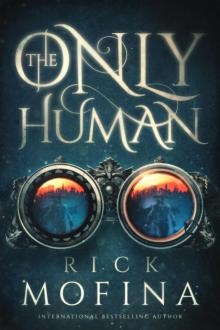 The Only Human
The Only Human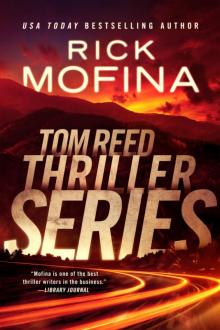 Tom Reed Thriller Series
Tom Reed Thriller Series![[Tom Reed and Walt Sydowski 04.0] No Way Back Read online](http://i1.bookreadfree.com/05/tom_reed_and_walt_sydowski_04_0_no_way_back_preview.jpg) [Tom Reed and Walt Sydowski 04.0] No Way Back
[Tom Reed and Walt Sydowski 04.0] No Way Back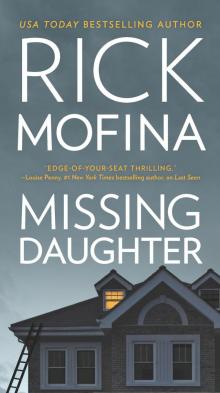 Missing Daughter
Missing Daughter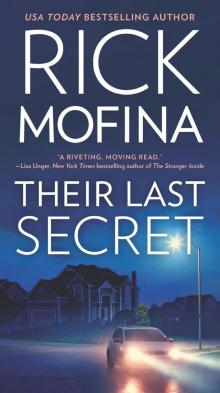 Their Last Secret
Their Last Secret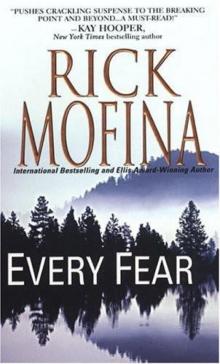 Jason Wade - 02 - Every Fear
Jason Wade - 02 - Every Fear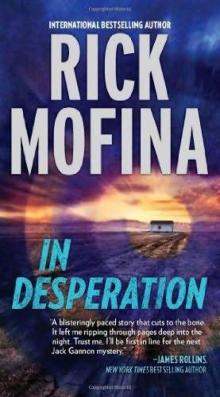 In Desperation
In Desperation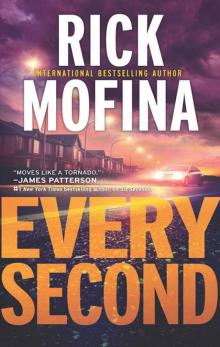 Every Second
Every Second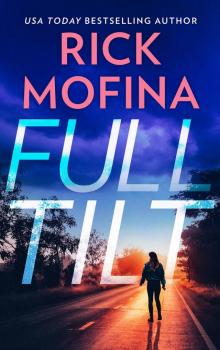 Full Tilt
Full Tilt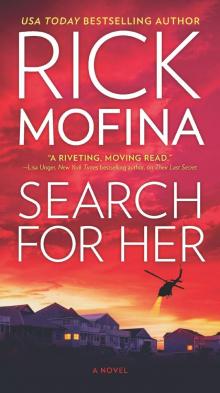 Search for Her
Search for Her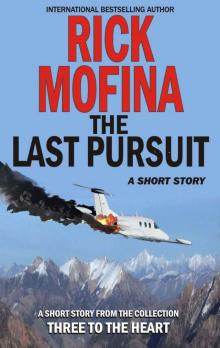 The Last Pursuit
The Last Pursuit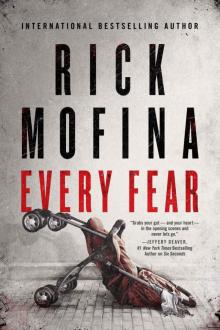 Every Fear
Every Fear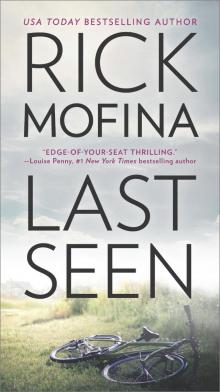 Last Seen
Last Seen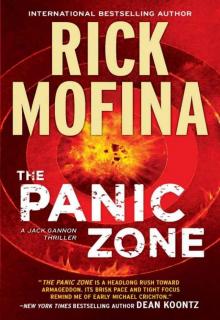 The Panic Zone
The Panic Zone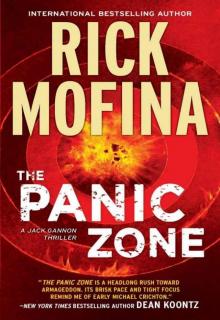 The Panic Zone jg-2
The Panic Zone jg-2 Free Fall
Free Fall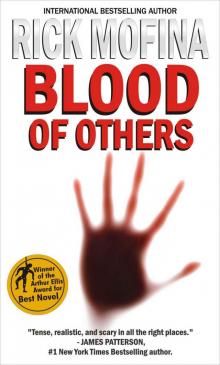 Blood of Others
Blood of Others![[Jason Wade 02.0] Every Fear Read online](http://i1.bookreadfree.com/i1/03/31/jason_wade_02_0_every_fear_preview.jpg) [Jason Wade 02.0] Every Fear
[Jason Wade 02.0] Every Fear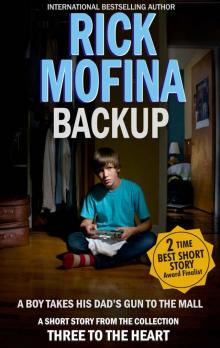 Backup
Backup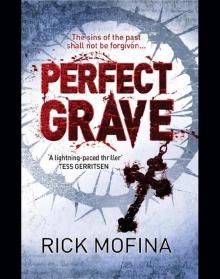 Perfect Grave
Perfect Grave Into the Dark
Into the Dark Whirlwind
Whirlwind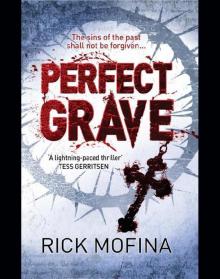 Perfect Grave jw-3
Perfect Grave jw-3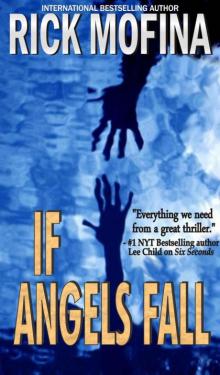 If Angels Fall (tom reed and walt sydowski)
If Angels Fall (tom reed and walt sydowski)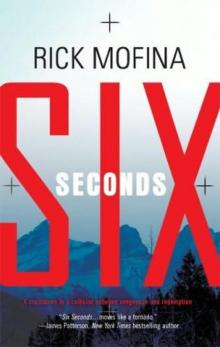 Six Seconds
Six Seconds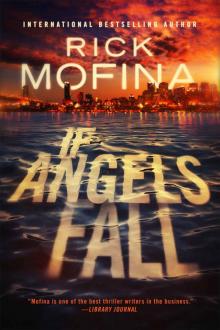 If Angels Fall
If Angels Fall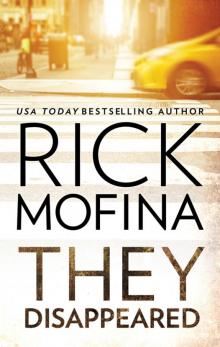 They Disappeared
They Disappeared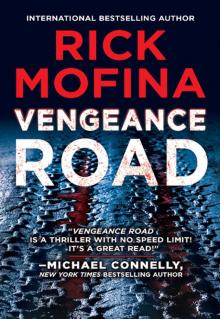 Vengeance Road
Vengeance Road Before Sunrise
Before Sunrise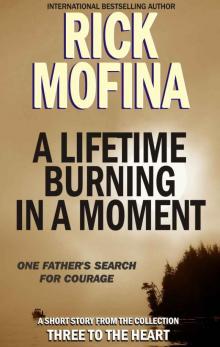 A Lifetime Burning in a Moment
A Lifetime Burning in a Moment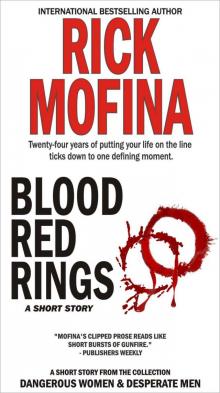 Blood Red Rings (Dangerous Women & Desperate Men)
Blood Red Rings (Dangerous Women & Desperate Men)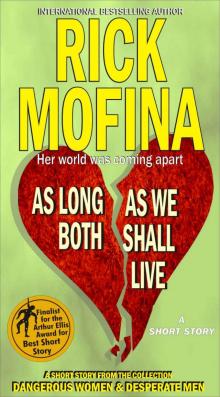 As Long As We Both Shall Live (Dangerous Women & Desperate Men)
As Long As We Both Shall Live (Dangerous Women & Desperate Men)![[Tom Reed and Walt Sydowski 01.0] If Angels Fall Read online](http://i1.bookreadfree.com/i2/04/12/tom_reed_and_walt_sydowski_01_0_if_angels_fall_preview.jpg) [Tom Reed and Walt Sydowski 01.0] If Angels Fall
[Tom Reed and Walt Sydowski 01.0] If Angels Fall Cold Fear
Cold Fear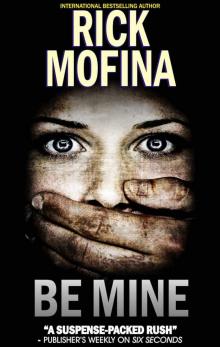 Be Mine
Be Mine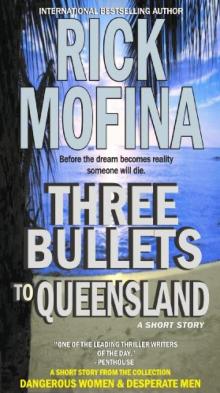 Three Bullets To Queensland
Three Bullets To Queensland